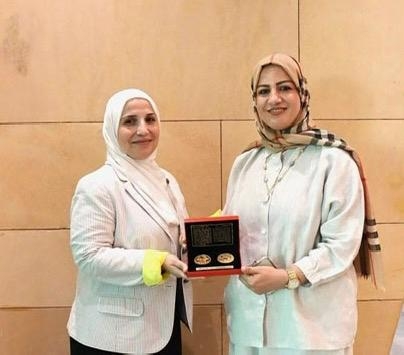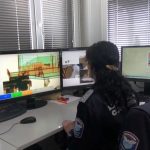The Ministry of Health in Bahrain recently welcomed a delegation from the World Health Organization (WHO) led by Dr. Tasnim Ghalib Atatrah. The WHO team visited the smoking cessation clinic at the Shaikh Abdulla Bin Khalid Al Khalifa Health Centre as part of ongoing efforts to enhance collaboration and share expertise in the health sector. The visit aimed to assess the clinic’s services and offerings to support individuals in quitting smoking, including consultations, treatments, and strategies.
The Ministry of Health has been working closely with the WHO to implement best practices and address tobacco use in Bahrain. The WHO, in partnership with member states, aims to achieve universal health coverage, promote healthier lifestyles, and support developmental goals. By adapting global health strategies to meet the specific needs of each nation, the WHO helps progress towards sustainable development goals. This collaboration aligns with the regional vision of “Health for All by All: A Call for Solidarity and Action.”
The smoking cessation clinic at the health centre plays a vital role in providing support to individuals looking to quit smoking. The clinic’s efforts are in line with Bahrain’s commitment to promoting healthier lifestyles and reducing tobacco use. By offering consultations, treatments, and strategies tailored to each individual’s needs, the clinic aims to help smokers successfully quit and improve their overall health and well-being.
The WHO team’s visit to the smoking cessation clinic highlights the importance of collaboration and sharing best practices in addressing public health challenges. By working together, the Ministry of Health and the WHO can further enhance smoking cessation services and support individuals in Bahrain in their journey to quit smoking. This collaboration contributes to the overall goal of achieving universal health coverage and promoting healthier lifestyles in the country.
The Ministry of Health’s ongoing efforts to collaborate with the WHO and implement best practices in smoking cessation services demonstrate their commitment to improving public health in Bahrain. By working together, the two organizations can address tobacco use and support individuals in quitting smoking more effectively. This collaboration not only benefits individuals seeking assistance in quitting smoking but also contributes to the broader goal of promoting healthier lifestyles and achieving sustainable development goals in the country.
Overall, the visit of the WHO delegation to the smoking cessation clinic in Bahrain highlights the importance of collaboration and sharing expertise in addressing public health challenges. By working together, the Ministry of Health and the WHO can enhance smoking cessation services, support individuals in quitting smoking, and promote healthier lifestyles in Bahrain. This collaboration reflects a shared commitment to achieving universal health coverage and advancing the goal of “Health for All by All: A Call for Solidarity and Action.”










